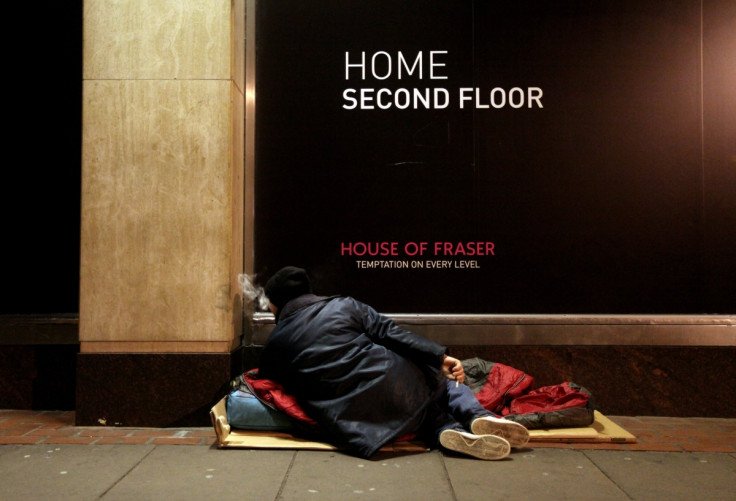Number of homeless people sleeping on London's streets doubles in 5 years

The number of people sleeping rough on the streets of London has more than doubled in the last five years, according to stark new statistics released by homeless charities. More than 7,500 people slept on London's streets in 2015, a huge rise from 3,673 in 2009-10, according to figures released by the Combined Homelessness Information Network (Chain).
The charities, backed by Labour's candidate for London mayor Sadiq Khan, are blaming a "toxic mix" of local government cuts and a severe lack of affordable housing.
Khan told the Guardian: "The rise in homelessness has been caused by a toxic mix of government failures: allowing London's housing crisis to go from bad to worse with fewer genuinely affordable properties available every year, cuts to social care and local authority funding which means there is less support for people who are at immediate risk of becoming homeless, and direct cuts to grants and programmes for organisations that tackle homelessness."
Howard Sinclair, chief executive of homelessness charity St Mungo's Broadway, echoed Khan's fears: "Worryingly, the number of people who've previously slept rough and are returning to the streets is rising. We need to ask what more can be done for these people, what gaps need to be filled to prevent repeat homelessness."
A spokesperson for the current mayor of London, Boris Johnson, said that any person sleeping rough in the city was a cause for concern and something that Johnson took extremely seriously.
"He invests £9m a year in vital services that help rough sleepers off the streets, including specialist services for non-UK nationals sleeping rough, a group that has significantly increased in recent years," the statement said. "Through the success of his flagship No Second Night Out scheme, the majority of those who arrive on the streets spend only one night sleeping rough."
St Mungo's, which administrates Chain with funding from the mayor's office, blamed several factors in particular for the ride. Cuts in funding are preventing councils from finding housing, while the number of EU migrants who come to the UK to find work but are exploited by unscrupulous employers is also growing. Cuts in mental health services are also pushing many especially vulnerable people with nowhere else to turn onto the streets.
© Copyright IBTimes 2025. All rights reserved.





















